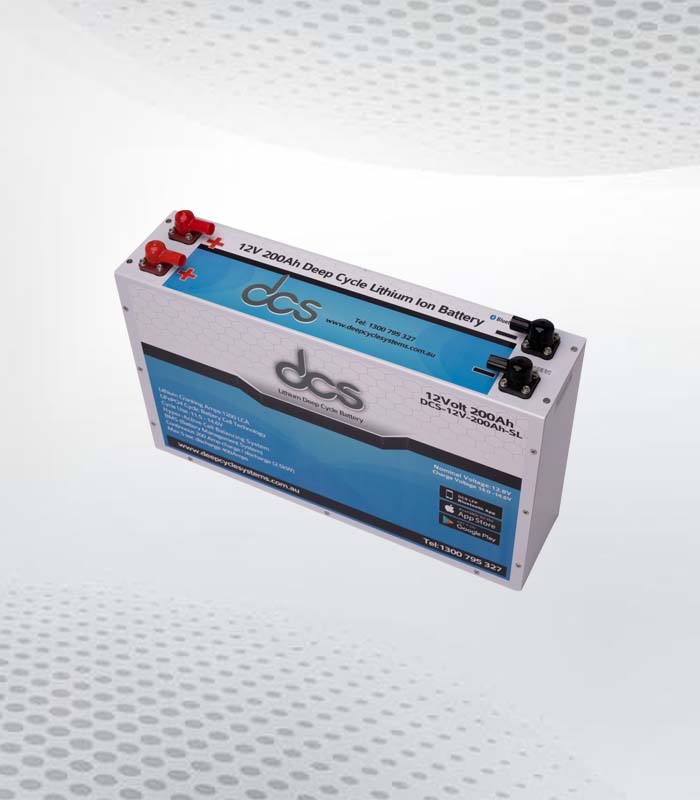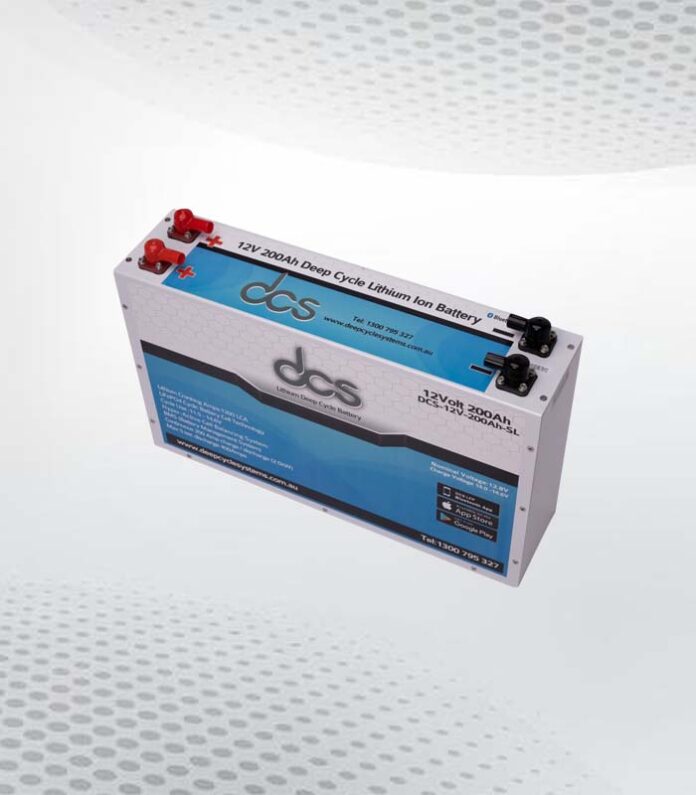When it comes to storing energy for various applications, having a reliable and long-lasting power source is crucial. This is where deep-cycle batteries stand out from the rest. These specialized batteries are designed to provide dependable and consistent energy storage, making them the go-to choice for many industries and households alike. In this blog post, we will dive deeper into the superiority of deep cycle battery and explore the many benefits it offer. From their durability to their versatility, let’s discover why deep-cycle batteries are the ultimate solution for all your power storage needs.
Understanding the Basics of Deep-Cycle Batteries
Deep-cycle batteries are a type of rechargeable battery that are specifically designed to provide consistent and reliable energy storage over long periods of time. Unlike regular batteries, which are typically used for short bursts of power, deep-cycle batteries are built to deliver sustained power output over an extended period.
One of the key characteristics of deep-cycle batteries is their ability to be deeply discharged and then recharged multiple times without losing their capacity. This makes them ideal for applications where a steady and consistent power source is required, such as in renewable energy systems, marine and RV applications, and off-grid power systems.
Deep-cycle batteries are constructed with thicker plates and more robust electrolytes, allowing them to withstand the stresses of repeated charging and discharging cycles. They also have a higher capacity and energy density compared to regular batteries, meaning they can store and deliver more power for longer durations.
These batteries are available in various types, including lead-acid, lithium-ion, and gel batteries, each offering its own advantages and disadvantages. Lead-acid deep-cycle batteries, for example, are affordable and widely available, while lithium-ion batteries offer higher energy density and longer lifespan.
Exploring the Superior Features and Benefits of Deep-Cycle Batteries
Deep-cycle batteries offer a multitude of superior features and benefits that make them the ultimate solution for all your power storage needs. Firstly, their ability to provide consistent and reliable energy storage over long periods of time sets them apart from regular batteries. Whether you need power for your renewable energy system, marine and RV applications, or off-grid power systems, deep-cycle batteries deliver sustained power output.
One of the standout features of deep-cycle batteries is their durability. With thicker plates and robust electrolytes, these batteries can withstand the stresses of repeated charging and discharging cycles. This means they can be deeply discharged and recharged multiple times without losing their capacity, ensuring their longevity and reliability.
Additionally, deep-cycle batteries have a higher capacity and energy density compared to regular batteries. This means they can store and deliver more power for longer durations, making them ideal for applications that require a steady and consistent power source.
Another advantage of deep-cycle batteries is their versatility. They are available in various types, including lead-acid, lithium-ion, and gel batteries, each offering its own advantages. Lead-acid batteries are affordable and widely available, while lithium-ion batteries offer higher energy density and longer lifespan.
Practical Applications and Use Cases for Deep-Cycle Batteries
Deep-cycle batteries are incredibly versatile and can be used in a wide range of applications and use cases. Their ability to provide consistent and reliable energy storage over long periods of time makes them a go-to choice for various industries and households. Let’s explore some practical applications and use cases for deep-cycle batteries.
One common use case for deep-cycle batteries is in renewable energy systems. Whether you have solar panels or wind turbines, deep-cycle batteries can store the energy generated during peak production periods for use during low production periods or at night. This allows you to have a reliable and continuous power supply, reducing your reliance on the grid and lowering your electricity bills.
Another popular application for deep-cycle batteries is in marine and RV settings. These batteries are specifically designed to withstand the demands of marine environments and provide a reliable power source for boats, yachts, and RVs. Whether you’re out at sea or exploring the great outdoors, deep-cycle batteries ensure that you have a steady power supply for all your electrical appliances and devices.
Off-grid power systems are another area where deep-cycle batteries shine. In remote areas or during power outages, deep-cycle batteries can provide a reliable backup power source. From powering essential appliances during emergencies to running off-grid cabins and remote communication stations, deep-cycle batteries ensure that you have power when you need it most.
Deep-cycle batteries also find applications in electric vehicles (EVs) and golf carts. These batteries are designed to deliver sustained power output for longer durations, making them perfect for powering EVs and electric carts. With the growing popularity of EVs, deep-cycle batteries play a crucial role in ensuring a reliable and efficient power source for these vehicles.
 Comparing Deep-Cycle Batteries to Other Power Storage Solutions
Comparing Deep-Cycle Batteries to Other Power Storage Solutions
When it comes to power storage solutions, deep-cycle batteries stand out from the crowd. But how do they compare to other options on the market? Let’s take a closer look.
One common alternative to deep-cycle batteries is the regular lead-acid battery. While lead-acid batteries are more affordable, they don’t have the same level of durability and longevity as deep-cycle batteries. They also have lower capacity and energy density, meaning they can’t store and deliver power for as long.
Lithium-ion batteries are another popular option, especially in the world of portable electronics. While they do offer higher energy density and longer lifespan compared to lead-acid batteries, they often come with a higher price tag. Deep-cycle batteries, on the other hand, provide a reliable and cost-effective solution for long-term power storage needs.
Gel batteries are also worth considering, as they offer similar advantages to deep-cycle batteries. However, they can be more expensive and may not have the same level of performance in extreme temperatures.
When comparing deep-cycle batteries to other power storage solutions, it’s clear that they excel in terms of durability, capacity, and versatility. They offer a reliable and long-lasting power source for a wide range of applications, making them the superior choice for all your energy storage needs.
Making the Switch: How to Optimize Your Energy Storage with Deep Cycle Solar Battery
If you’re considering making the switch to deep cycle solar batteries for your energy storage needs, you’re on the right track to optimizing your power storage system. Deep cycle solar batteries offer numerous advantages and can significantly improve the efficiency and reliability of your energy storage setup.
To start optimizing your energy storage, you’ll need to assess your power requirements. Calculate how much energy you need to store and how long you need it to last. This will help you determine the capacity and number of deep cycle solar batteries you need.
Next, consider the type of deep cycle solar battery that suits your needs. Lead-acid batteries are affordable and widely available, while lithium-ion batteries offer higher energy density and longer lifespan. Assess your budget, power requirements, and preferences to make the right choice.
Once you’ve selected the right solar battery, it’s important to properly install and maintain it. Follow the manufacturer’s instructions for installation and ensure the battery is connected correctly to your solar power system. Regularly monitor the battery’s charge level and perform maintenance tasks such as cleaning terminals and checking for any signs of damage.
Finally, optimize your energy usage to maximize the efficiency of your deep cycle solar batteries. Minimize unnecessary energy consumption, invest in energy-efficient appliances, and consider implementing smart energy management systems to effectively monitor and control your power usage.
By following these steps, you can make a smooth transition to deep cycle solar batteries and optimize your energy storage for reliable and efficient power supply. Enjoy the benefits of consistent and sustainable energy storage while reducing your reliance on the grid.
FAQS
As we delve into the world of deep-cycle batteries, it’s natural to have questions. Here are three FAQs to help you gain a deeper understanding:
1. How long do deep-cycle batteries last?
Deep-cycle batteries have a longer lifespan compared to regular batteries. On average, a well-maintained deep-cycle battery can last anywhere from 4 to 8 years, depending on the type and usage. Factors such as the number of discharge cycles, charging practices, and operating conditions can affect the battery’s lifespan. It’s important to follow proper maintenance and charging procedures to maximize the longevity of your deep-cycle battery.
2. Can deep cycle battery be used in extreme temperatures?
Yes, deep-cycle batteries are designed to withstand a wide range of temperatures. However, extreme temperatures can affect their performance. In extremely cold conditions, the battery’s capacity may be reduced, requiring longer charging times. On the other hand, in extremely hot temperatures, the battery may experience increased self-discharge. It’s important to monitor the battery’s performance in extreme conditions and take appropriate measures, such as insulation or ventilation, to optimize its operation.
3. Can I mix different types of deep-cycle batteries in my system?
While it’s not recommended to mix different types of deep-cycle batteries within the same system, it can be done in certain cases. Mixing batteries with different chemistries, such as lead-acid and lithium-ion, can lead to uneven charging and discharging, reducing overall system efficiency. However, if you need to replace a single battery in your system and it’s not possible to match the exact same model, you can consult with a battery expert or the manufacturer for guidance on compatibility and proper configuration.
Conclusion
In today’s world, reliable and long-lasting power storage solutions are essential. And when it comes to meeting these requirements, deep-cycle batteries reign supreme. These specialized batteries are designed to provide consistent and dependable energy storage, making them the go-to choice for industries and households alike. So, when it comes to power storage solutions, don’t settle for anything less than the best. Make the switch to deep-cycle batteries and optimize your energy storage for consistent and sustainable power supply. Enjoy the benefits of reliable energy storage while reducing your reliance on the grid. Trust in deep-cycle batteries to meet all your power storage requirements.

